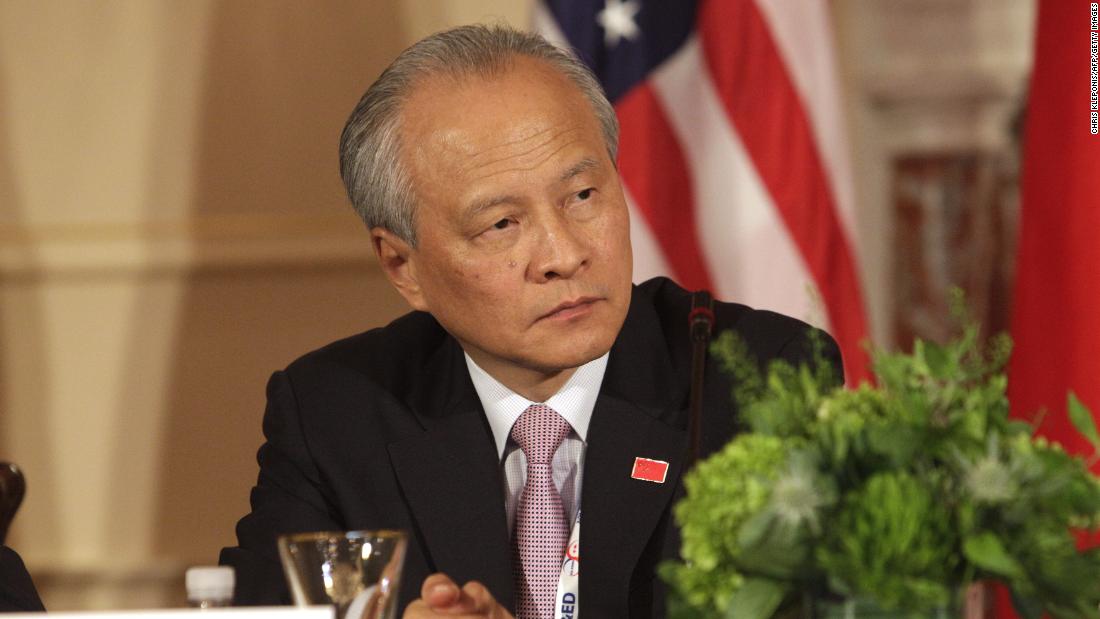
Cui spoke to CNN’s Fareed Zakaria in an exclusive interview on Saturday, after dizzying days in the sour relationship between the United States and China.
In response to claims by some in the West that under President Xi Jinping, China has become a firmer, expansionist and more repressive power, Cui said that “people must fully recognize the reality of today’s world.”
“We certainly have the legitimate right to make our country a modernized, strong and prosperous country, like any other country in the world,” said the ambassador.
“I think the fundamental question for the United States is very simple,” he said. “Is the United States ready or willing to live with another country with a very different culture, a very different political and economic system … in peace and to cooperate in so many global challenges that continue to grow?”
Hong Kong
Critics of the law say it undermines the political and legal freedoms that have existed in Hong Kong since Britain handed the former colony over to China in 1997.
The law introduces four new crimes: secession, subversion, terrorist activities and collusion with a foreign country, which carry maximum penalties of life imprisonment. It also puts foreign citizens who criticize the Chinese government anywhere in the world at risk of imprisonment if they step on the city, even if they are only in transit through its airport.
But Cui repeated what many mainland and Hong Kong officials have said in recent weeks: that the law maintains the “one country, two systems” framework that governs Hong Kong and will make the city “more stable.”
“People could have a more predictable and secure environment for doing their business in Hong Kong. That is the true purpose of this law,” he said.
Xinjiang
Washington’s sanctions on Chinese officials include freezing their American assets and a blockade that prevents American citizens from doing business with them. Those sanctioned by the US also face visa restrictions, preventing them and their families from entering the US.
“I don’t know how absurd all these fabrications can be,” Cui said, adding that people based their perceptions or judgments on reports from “questionable sources.”
south china sea
Cui said China “will not participate in such a decision” and that “it was not based on a very solid legal basis.”
“We have a very strong position on our sovereignty over the territorial claim in the region. And our claims have a very solid historical and legal basis. But still, we want to resolve all disputes with other countries, with other demanding countries through negotiations. diplomatic. “he said.
Cui blamed the US intervention in the South China Sea for destabilizing the region.
“Without external interference, the situation in the region was cooling,” Cui said. “But, unfortunately, countries like the United States in particular, the United States, are trying very hard to intervene, send their armed forces and strengthen their military presence in the region. The intensity and frequency are so high.”
.